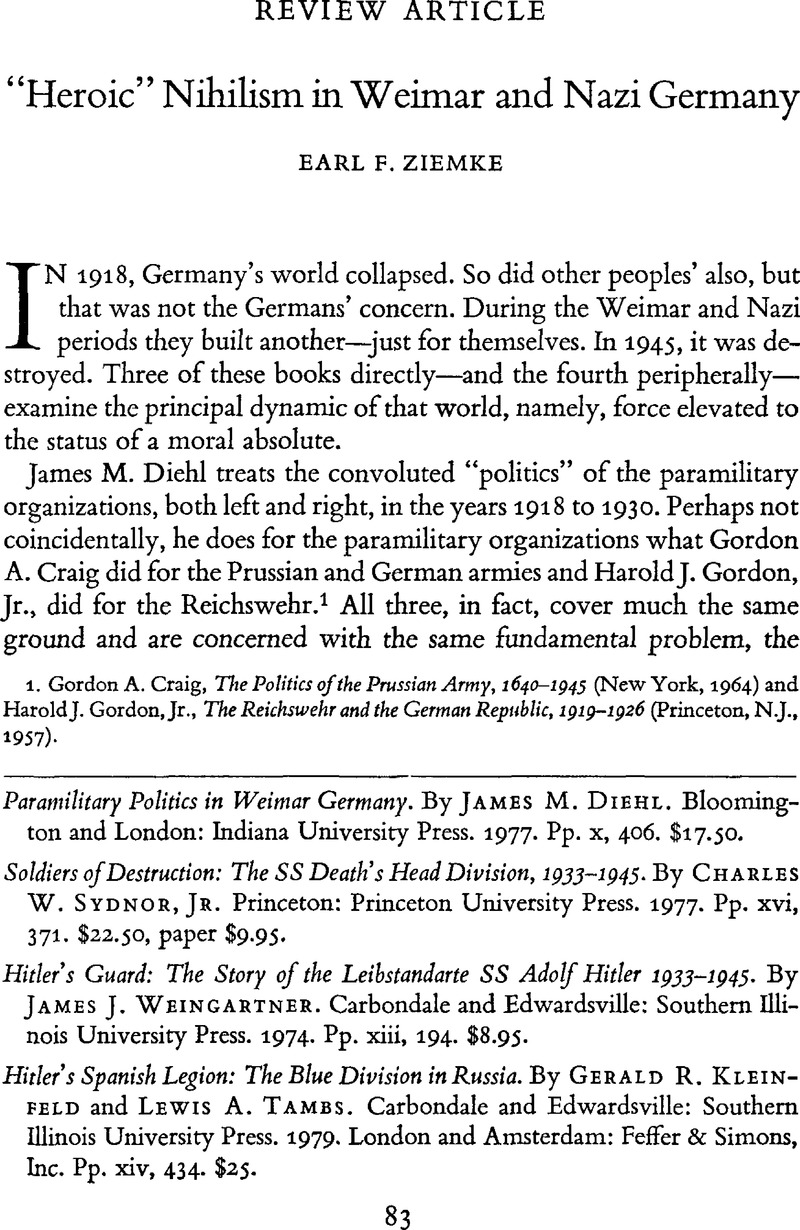No CrossRef data available.
Published online by Cambridge University Press: 16 December 2008

1. Craig, Gordon A., The Politics of the Prussian Army, 1640–1945 (New York, 1964)Google Scholar and Gordon, Harold J. Jr., The Reichswehr and the German Republic, 1919–1926 (Princeton, N.J., 1957).Google Scholar
2. Karl Dietrich Bracher, The German Dictatorship (New York, 1970), p. 23.Google Scholar
3. Freytag, Gustav, Bilder aus der deutschen Vergangenheit (Leipzig, 1899), 1: 101.Google Scholar
4. Jünger, Ernst, “Der Kampf als inneres Erlebnis,” Werke (Stuttgart, 1960), 5: 13f.Google Scholar
5. von Martin, Alfred, Der heroische Nihilismus und seine Überwindung (Krefeld, 1948), p. 15.Google Scholar
6. Rauschning, Herman, The Revolution of Nihilism (New York, 1939), p. 20.Google Scholar
7. Salomon, Ernst von, Der Fragebogen (Hamburg, 1951), p. 435.Google Scholar
8. Hausser, Paul, Soldaten wie andere auch (Osnabrück, 1966).Google Scholar
9. Stein, George H., The Waffen SS (Ithaca, 1966), pp. 282f.Google Scholar
10. Beaumont, Roger A., Military Elites (New York, 1974)Google Scholar, and Cohen, Eliot A., Commandos and Politicians, Harvard Studies in International Affairs, no. 40 (Cambridge, Mass., 1978).Google Scholar
11. Beaumont, p. 155.
12. See ibid., pp. 3 and 156.
13. See Beaumont, pp. 171–93, and Cohen, pp. 95–102.
14. Stein, p. 207.
15. For documentation see, by the reviewer, Stalingrad to Berlin: The German Defeat in the East (Washington, 1968), pp. 91–97.Google Scholar
16. On Malmédy, see also Weingartner's, Crossroads of Death: The Story of the Malmédy Massacre and Trial (Berkeley and Los Angeles, 1979).Google Scholar
17. Beaumont, p. 192.